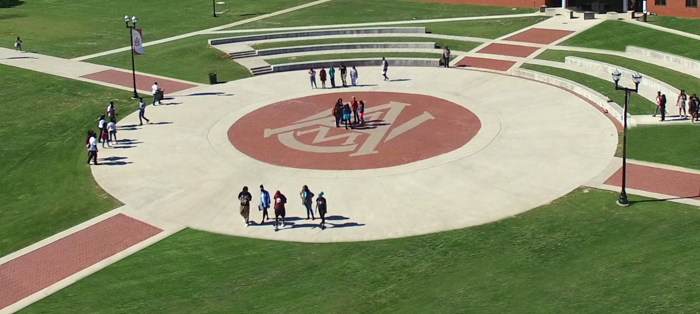Student of Concern and Suicide Prevention
A student of concern (SOC) is any student who is seen displaying a disruptive or dangerous behavior or action that could interfere with their ability to learn and be successful on campus. This behavior or action can result in disruptions to other students and possibly interfere with the living and/or learning environment on campus.
We all have a responsibility to support one another and if you think something may be wrong, you can make an anonymous report to ensure the SOC gets the help they need. If someone is an immediate threat to self, others, or property you should treat that as an emergency and contact AAMU Department of Public Safety at (256) 372-5555 or 911.
Examples of Concerning Behavior
- Noticeable change in behavior
- Poor hygiene
- Periods of high anxiety
- Irregular class attendance
- Threats to self-harm or harm others
- Class disruptions
- Extreme changes in weight and/or appearance
- Appears under the influence of alcohol or other drugs
- Writing or art that appears concerning
This is not an inclusive list and may not have mentioned all types of concerning behavior. If you feel something is concerning but aren’t sure, you can submit an anonymous alert through Red Flag which will notify campus administrators and call DPS at (256) 372-5555.
Suicide Prevention
In the case of a life-threatening emergency 24/7/365 call 911 or call DPS (256) 372-5555 (on campus).
What is a suicidal threat?
A suicidal threat is a written, spoken, or behavioral indication to self-harm with the intent to end one’s own life. This can also be considered a suicidal ideation.
What is a suicidal attempt?
A suicide attempt is where a person tries (using a lethal method) to commit suicide but survives. There is usually evidence that the person has some intent to end their life. An unsuccessful attempt may result in injury or permanent physical damage.
Reporting a suicidal threat or attempt
- In the case of a life-threatening emergency call 911 or call DPS (256) 372-5555 (on campus).
- During normal hours (8am-5pm): Health & Counseling Services (256) 372-5601 or (256) 372-5800.
- After hours (5pm-8am): Call DPS (256) 372-5555 or Health & Counseling Servicer after-hours (256) 929-8147
Responding to a suicidal threat or attempt
AAMU will treat any report of a suicide attempt or threat as a confidential medical emergency. Several departments collaborate to ensure the student’s health and wellbeing is primary while protecting the health and safety of others. The Health & Counseling Center will work with DPS, Student Conduct and Community Standards, Residential Life & Housing to ensure immediate care is received and a plan is in place to support the student once they return.
For more information read the Protocol for Student Suicide Attempt(s) and Reentry.
| Suicide Risk Factors | Suicide Warning Signs |
| Mental disorders, particularly mood disorders, schizophrenia, anxiety disorders, and certain personality disorders | Talking about wanting to die or to kill themselves |
| Alcohol and other substance use disorders | Talking about feeling hopeless or having no reason to live |
| Hopelessness | Talking about feeling trapped or in unbearable pain |
| Impulsive and/or aggressive tendencies | Increasing the use of alcohol or drugs |
| History of trauma or abuse | Acting anxious or agitated; behaving recklessly |
| Previous suicide attempt(s) | Extreme mood swings |
| Family history of suicide | Showing rage or talking about seeking revenge |
Resources
- Mental Health First Aid Training
Learn more about Mental Health First Aid, and to schedule a training for your department, student group, faculty. - Suicide Prevention Lifeline
1 (800) 273-8255
The Lifeline provides 24/7, free and confidential support for people in distress, prevention and crisis resources for you or your loved ones, and best practices for professionals. - Crisis Services of North Alabama
(256) 716-1000
The North Alabama Crisis Services offers support 24/7/365 for domestic violence, confidential crisis counseling, and sexual assault response. - Thrive Alabama
(256) 536-4700
Thrive Alabama provides primary care including HIV/STD testing and treatment.
In order to view PDF files on your computer, you must have a PDF reader program installed. If you do not already have such a reader, you can download a free reader at Adobe's website: Download Adobe Acrobat Reader Software

 Skip to content
Skip to content